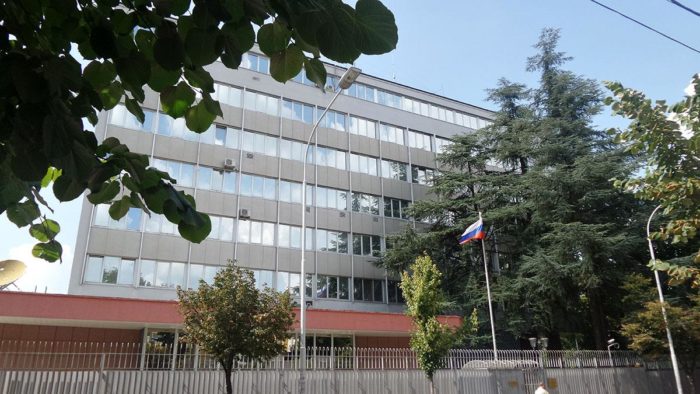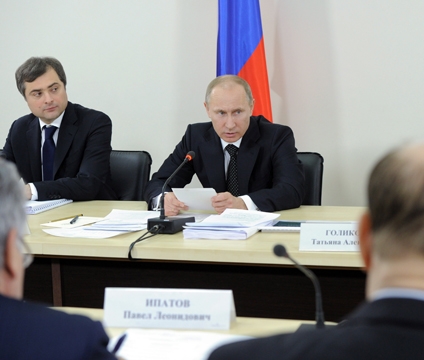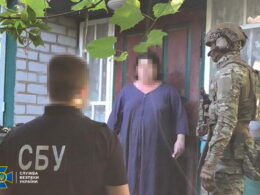After being expelled from the EU in connection with spy scandals or Russia’s full-scale invasion of Ukraine, at least eight Russian diplomats have started working at the embassy in Serbia, according to the investigation by Radio Free Europe/Radio Liberty (RFE/RL).
Among the Russian diplomats in Serbia is Alexei Ivanenko, who was expelled from Croatia in April 2022. He served as the second secretary of the embassy in Croatia and became the first secretary in Belgrade.
Radio Liberty confirmed Ivanenko’s involvement in the work of Russian FSB’s Center 16. The center carried out cyberattacks on energy infrastructure in the US and other countries.
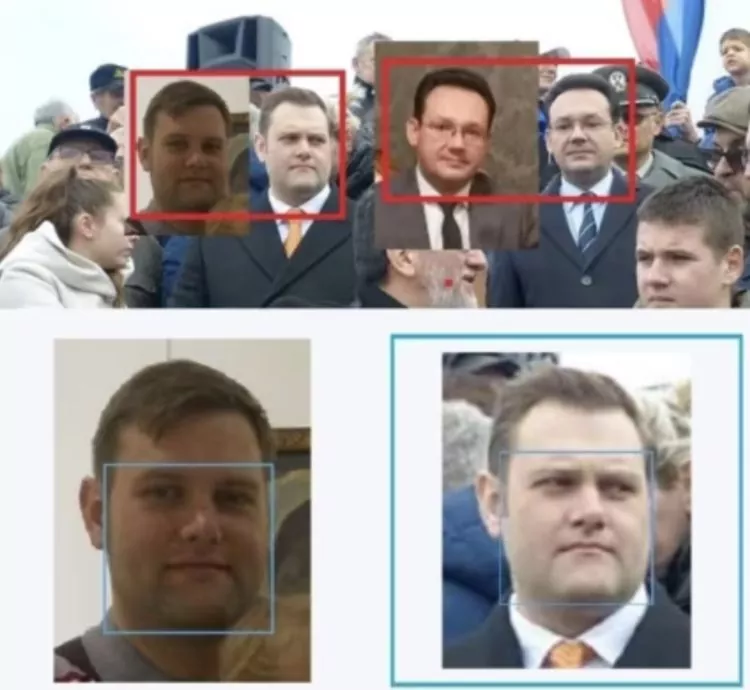
Russians Mikhail and Zinaida Generalov entered Serbia from Poland. Mikhail Generalov was registered in Moscow in a house that is a departmental building of the Foreign Intelligence Service.
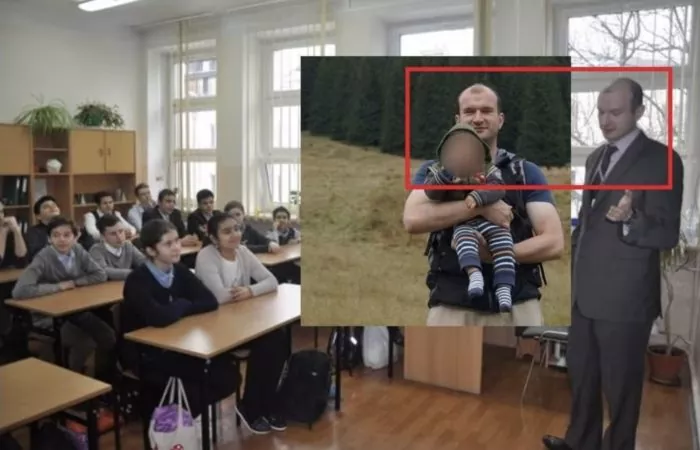
The second secretary of the Serbian Embassy in Russia is Dmitry Barabin, who was expelled from the Netherlands in March 2022. It is unknown where he was before, but Dmitriy Barabin’s father, Gennady, worked in the Military Topographic Department of the General Staff of the Russian Armed Forces.

According to Radio Liberty, Evgeny Anpilov is the assistant military attaché at the Russian embassy in Belgrade. He previously held the same position at the Russian diplomatic mission in Montenegro.
Other employees of the Russian Embassy in Serbia have recently worked in countries that expelled Russian diplomats in 2022 and 2023. Additionally, they have worked in international organizations with strained relations with Russia.
Denis Rumyantsev, for example, is the embassy’s first secretary and worked in Macedonia in 2019. Alexander Novikov, another first secretary, worked at the Russian mission to the Organization for the Prohibition of Chemical Weapons (OPCW) in 2018. Novikov was listed as a Russian Ministry of Defense representative on the OPCW website.
Vladimir Podrezov, the embassy’s third secretary in Montenegro in 2014, has also been promoted and is now the second secretary in Belgrade. Finally, Mikhail Maksimenko, a second secretary at the Russian embassy in Serbia, was the third secretary at the Russian embassy in London in 2017, shortly before the mass expulsion of Russian diplomats in connection with the Skripal case.
From the beginning of the Russian invasion of Ukraine until the end of 2022, the EU member states expelled nearly 500 Russian diplomats and administrative personnel.
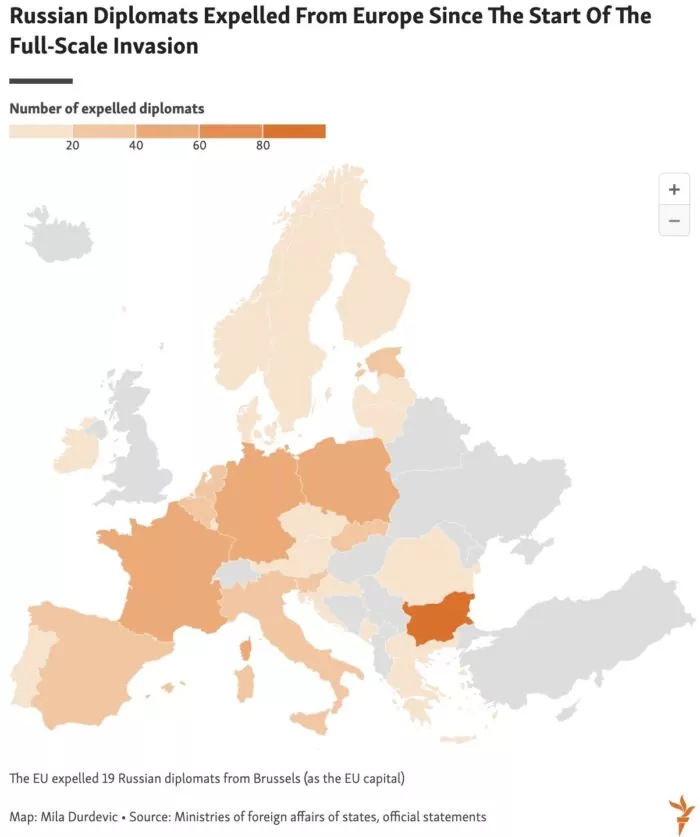
In contrast, the Russian diplomatic presence has increased in Serbia, which has declared its desire to join the EU: 54 Russian diplomats worked in the country in February 2022 and 62 in March 2023.
Peter Stano, the spokesperson for Josep Borrell, the EU foreign policy chief, stated that only Russia could decide whether to send a diplomat expelled from an EU member state to another EU member state. Under the condition of anonymity, a second senior European official confirmed to RFE/RL that there is no formal ban on transferring diplomats expelled from one EU country to another. However, such a prohibition is an unspoken customary practice.
Read also:
Ukraine’s security service exposes over 600 Russian agents and spies since start of invasion
Putin’s Patriarch Kirill spied for USSR in 1970s Switzerland – Swiss media
Austria arrests Russian spy who passed classified information on war in Ukraine




